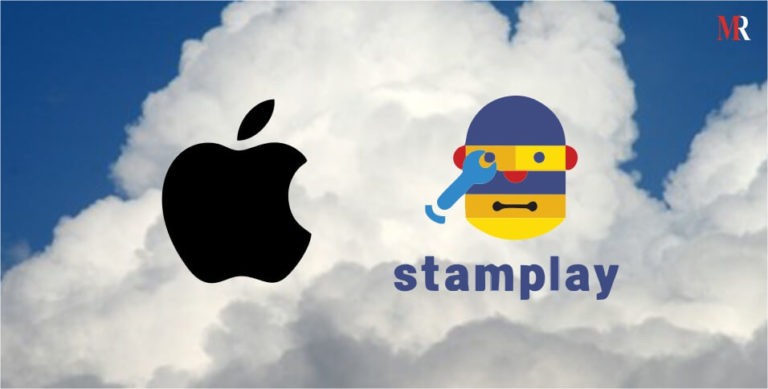Acquisition would help Apple simplify cloud-based development of apps
Tech giant, Apple has announced that it has acquired Stamplay, an Italian startup that aims to simplify cloud-based development of apps for businesses. The acquisition of Stamplay by Apple is said to have been worth five million euros was signed in order to help developers create iOS apps. Moreover, Stamplay could help improve a cloud server for managing user data and to perform functions, an area that is usually overlooked by new app developers.
Modernizing manual work by incorporating data and business applications
Stamplay’s low code work-flow automation platform would empower organisations such as Apple to modernize manual work by incorporating data and business applications used every day. The platform enables developers to rapidly build and launch full-featured cloud-based web apps without coding these programmes. The Stamplay platform would instead utilize an application program interface (API) which is a set of routines, protocols, and tools for building software applications. Stamplay’s focus would be Lego for API that would enable business developers to easily connect both internal and external APIs to apps. The platform includes popular application program interface APIs like Stripe that is an application for payments, Sendgrid for email, Twilio for SMS and Pusher for real-time notifications.
ApplePay expands its inroads through dual-network debit cards.
Besides that, Stamplay’s experience in the financial payments industry could be beneficial to Apple in terms of Apple Pay, its digital payment service. Stampay could help Apple to expand and make inroads in Australia through its dual-network debit cards. This service would let users opt for Visa or EFTPOS, which is an electronic payments system that is connected to debit or credit cards presented at the point of sale and that are available only in Australia.
Tim Cook CEO of Apple stated, “We believe the availability of Apple Pay at major transit systems has been a key driver of adoption among commuters, and in March, we launched Express Transit with Apple Pay in Beijing and Shanghai — the second- and third-largest transit systems in the world















